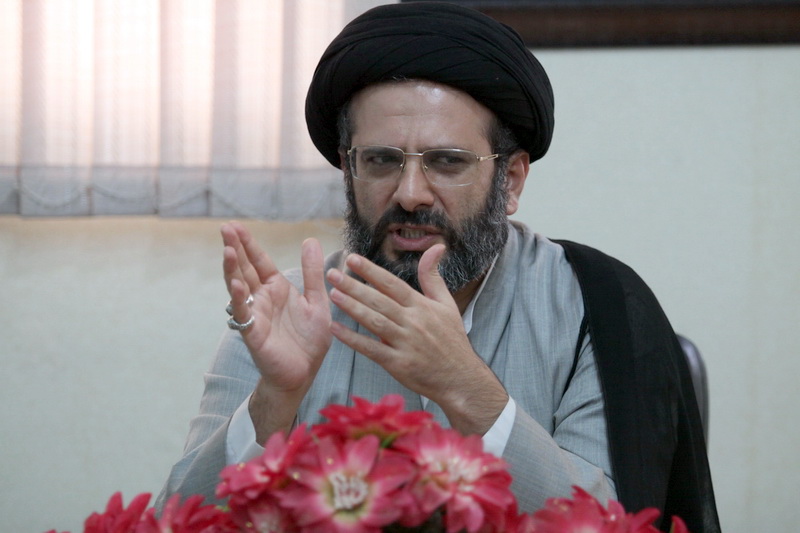
RNA – A series of workshops on the topic of Islamizing human sciences was held in Qom, Iran on Tuesday, January, 17.
Hujjat al-Islam Sayyed Mofid Hoseyni-Kouhsari, the head of the Islamic Seminaries’ International Relations Office, was a keynote speaker of the event.
In his remarks, the Shi’ah cleric highlighted the importance of Islamic human sciences saying, “Islamic humanities play a vital role in establishing the international face of Islam and that is something which cannot be taken for granted.”
The head of the Islamic Seminaries’ Centre for International Relations further added, “Sadly, some of the scholars in the field of Islamic human sciences do not pay enough attention to the international aspects of Islamic humanities and its global impact.”
He said, “It’s best if we pursue activities and topics that actually play a key role in internationalizing Islamic humanities. the first layer involved in this process would be Shi’ah Muslims. There might be some differences of opinions among Shi’ah seminaries in Najaf, Lebanon or other Islamic countries, but when it comes to the issue of human sciences, these differences fade away.”
Hujjat al-Islam Hoseyni-Kouhsari went on, “The second layer would be the Islamic world. there’s no sensitivity toward Islamic human sciences within the Muslim world and this situation can open up new possibilities for promoting interfaith dialogues among Shi’ah movements throughout the Islamic world.”
“The third layer is concerned with interfaith dialogue. There are almost two billion Christians as well as hundreds of millions of Hindus in the world. It’s rather easy to initiate talks on Islamic economy with a Hindu and such relations could lead to further interfaith interactions,” Hujjat al-Islam Hoseyni-Kouhsari added.
Elsewhere in his remarks, the Shi’ah cleric asserted, “The fourth layer in the process of internationalizing Islamic humanities would be the activities that are carried out outside the domain of religious matters. There are academic centers in the world that are not affiliated with any religion but are interested in pursuing scientific trends and subjects. A great example of such activities would be the European countries’ growing interest in implementation of Islamic Banking.”
Hujjat al-Islam Hoseyni-Kouhsari further reiterated that if one wishes to promote Islam internationally, they need to act on the guidelines from late Imam Khomeini and the Supreme Leader of the Islamic Revolution, Ayatollah Khamenei.
“Martyr Musa al-Sadr was among those figures who truly appreciated the civilized doctrine of Islam and Ahlul-Bayt, this led him to serve as an influential religious missionary abroad,” he said.
“International Muslim missionaries need to promote the rich literature of the teachings of the Ahlul-Bayt. One can play an influential role in international arenas only when they believe in the global stature of Islamic civilization,” Hujjat al-Islam Hoseyni-Kouhsari said in conclusion.
112/940